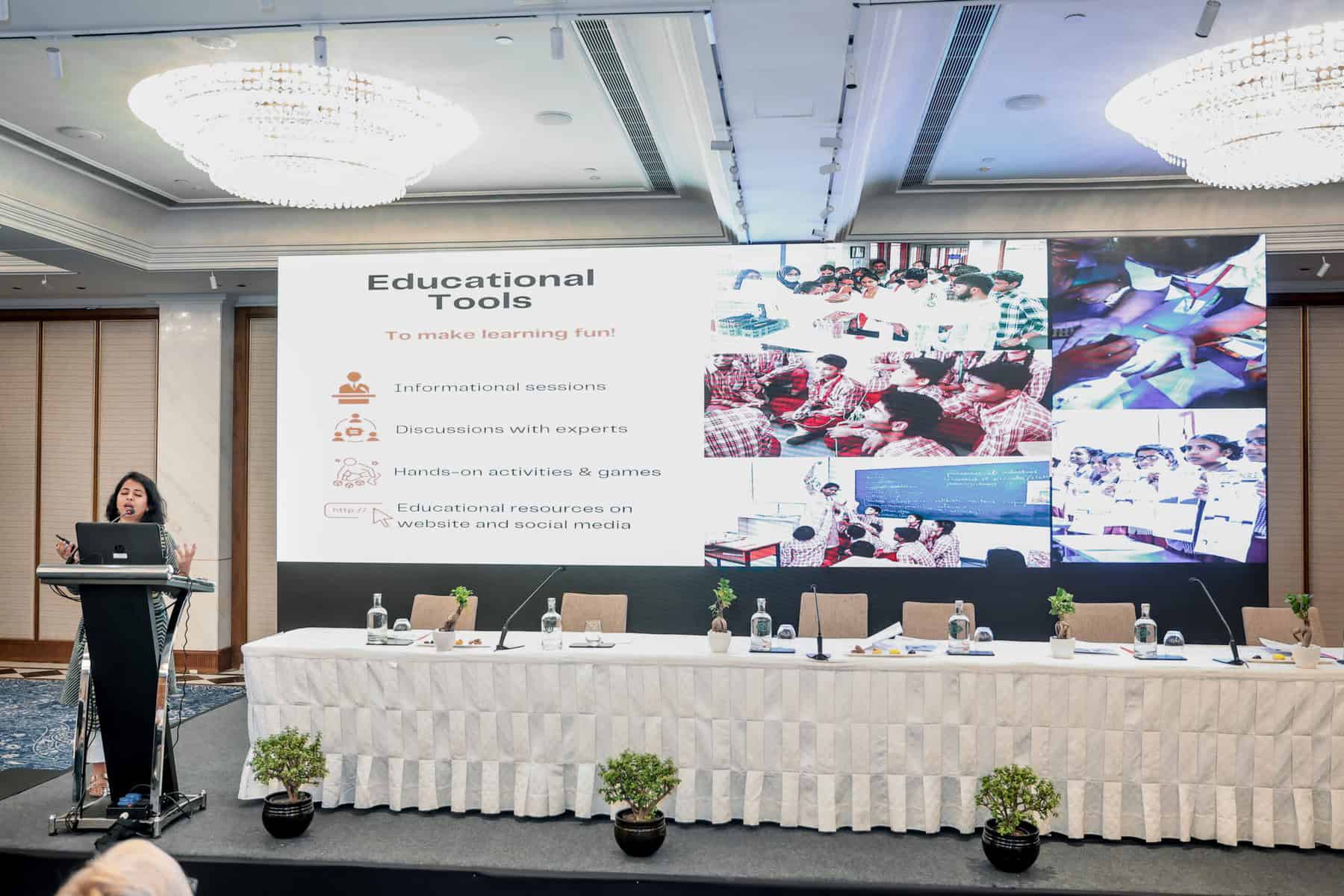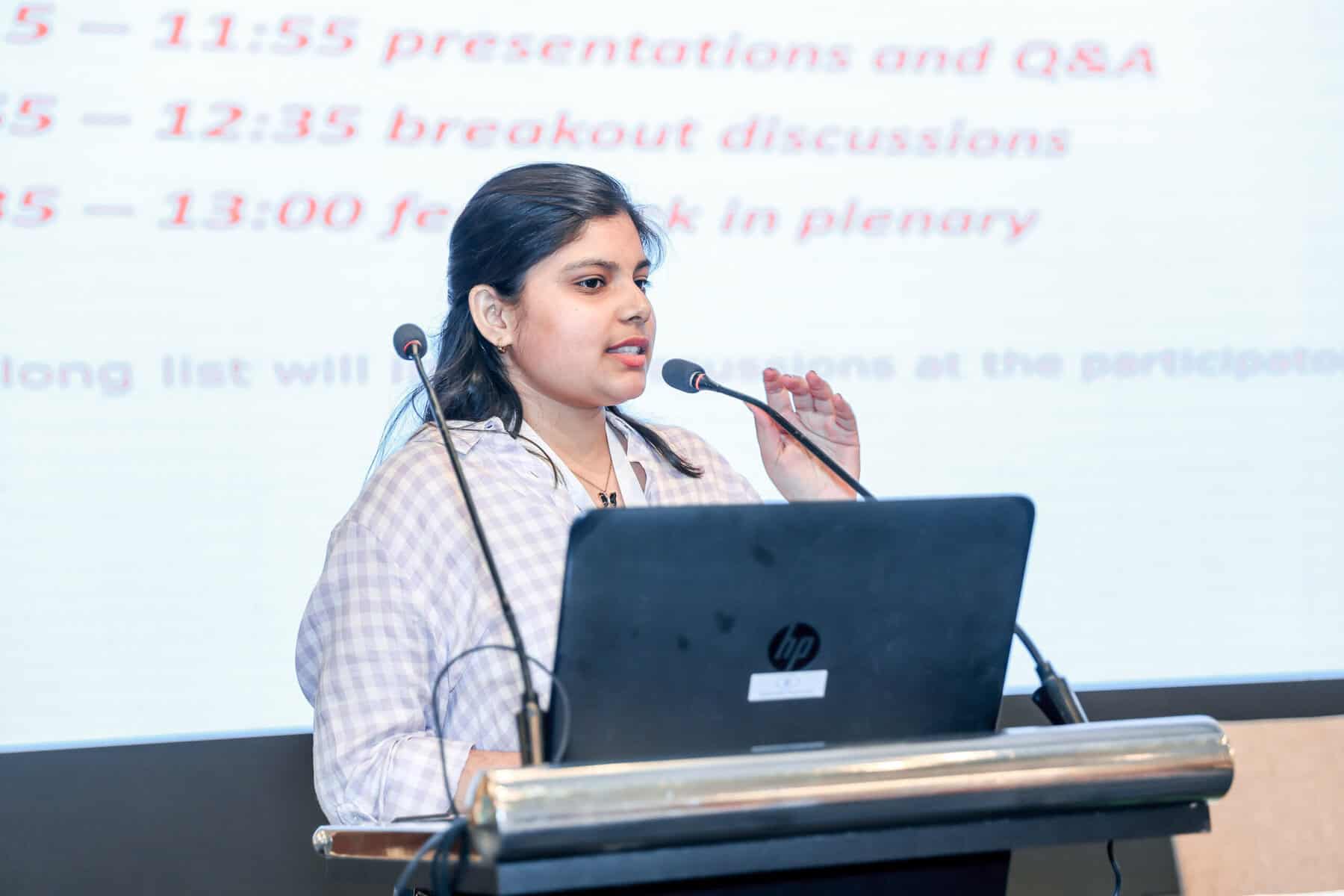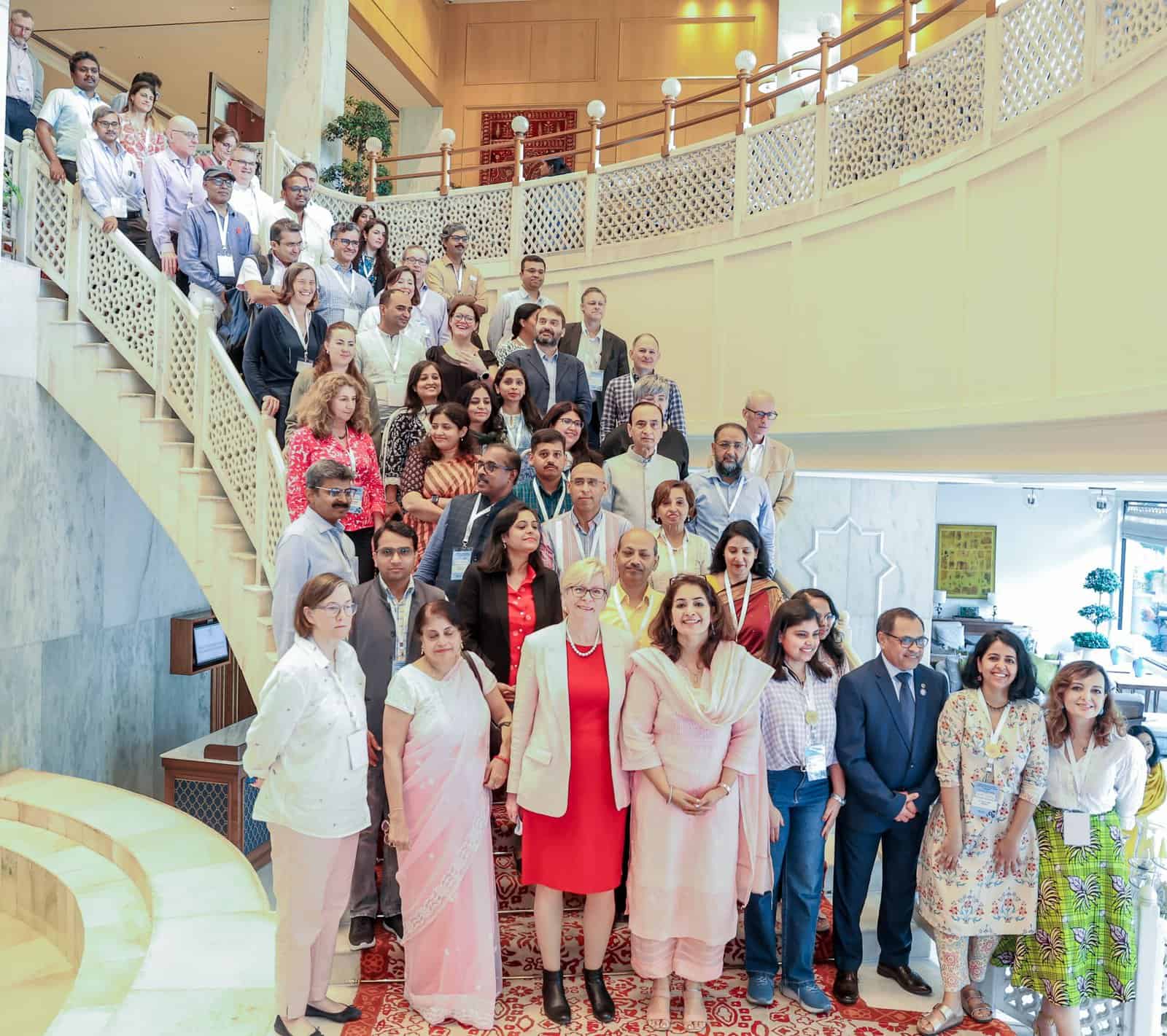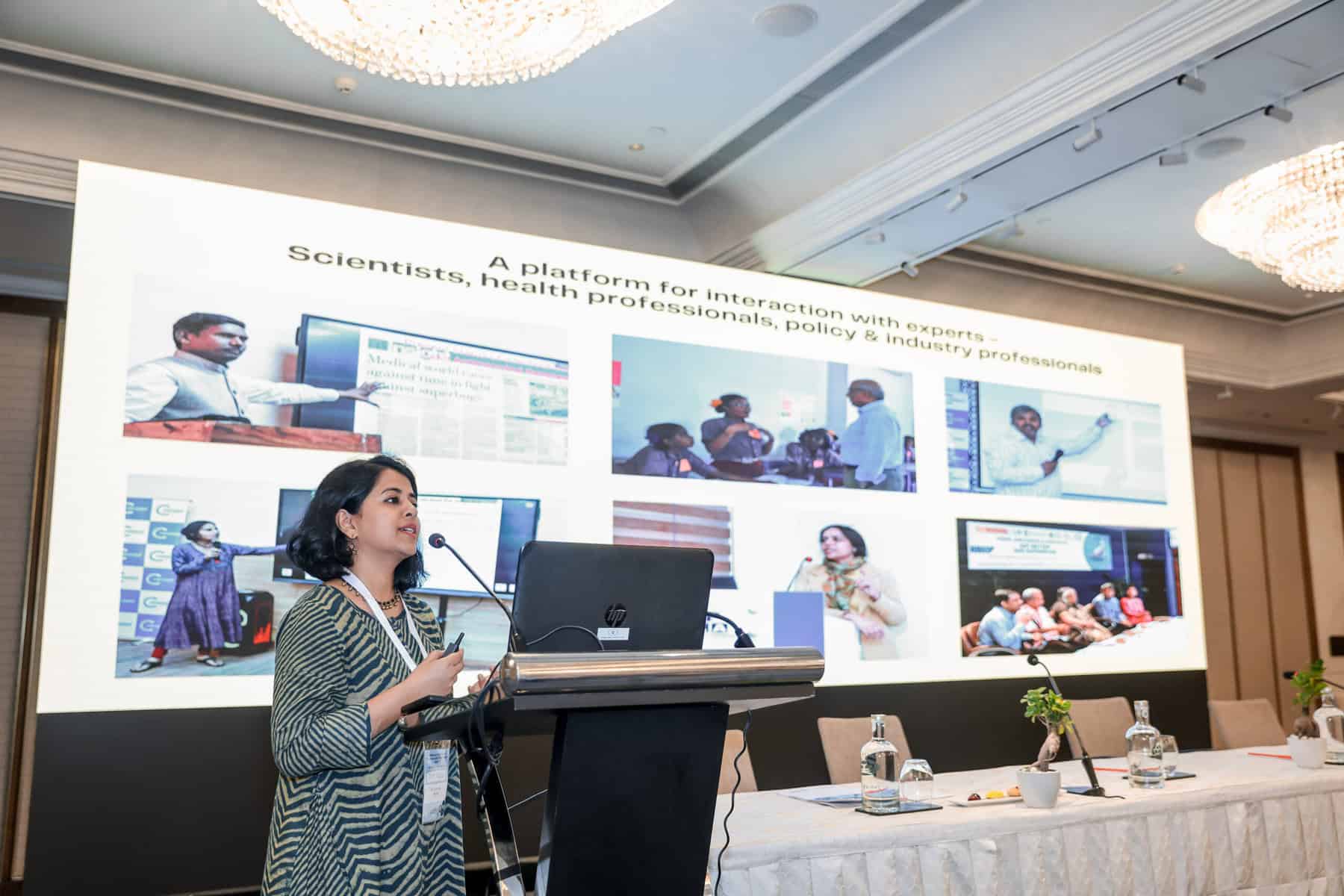SaS recently participated in the India-UK One Health Symposium organised by the Academy of Medical Sciences, UK, and the Indian Council of Medical Research (ICMR) on May 29-30, 2024. The symposium brought together scientific and medical experts, policymakers, industry, and other key stakeholders to discuss ongoing efforts and strategies to combat Antimicrobial Resistance (AMR) using a One Health framework. The event underscored the importance of integrating human, animal, and environmental health sectors to effectively tackle AMR, while also emphasising the need for developing innovative communication and community engagement strategies through research and practice.
The symposium covered a range of critical topics on AMR. The discussions included quantifying the health and economic burden of AMR in India and the UK, exploring policies from central and state governments in India, and considering perspectives from the UK and WHO collaborations on AMR in India. The symposium also highlighted international frameworks supporting a One Health approach to AMR, focusing on shared global goals. Other sessions addressed behaviour change, innovations, and best practices to identify behaviours driving antibiotic use and the roles of different stakeholders in facilitating these changes. Innovative case studies on increasing public knowledge about AMR and the role of pharmacists in combating AMR were also emphasised. Strategies to manage the emergence and spread of AMR in environmental and healthcare settings were explored, underscoring the necessity of a multifaceted approach.

SaS was invited to share its insights and learnings as a youth-focused initiative, showcasing innovative strategies for raising awareness about AMR. Dr Sarah Hyder Iqbal, co-founder and lead of SaS, delivered a talk that outlined SaS’ key objectives and activities, which aim to foster public dialogue on AMR, encourage responsible antibiotic use and infection control practices, and build diverse partnerships to elevate awareness.
The symposium also featured a deliberative session where participants discussed a range of solutions to address AMR with a One Health approach in India and the UK. The session brought together these discussions and started to identify universal interventions India and the UK could take to address AMR. These interventions were aimed at avoiding increased inequalities and exclusion, and they considered gender, ethnicity, and socio-economic backgrounds. From this session, participants produced a long list of interventions that could serve as a common denominator within both countries. The plenary discussions were used to inform the final report and the policy workshop the next day. From these discussions, it was anticipated that a long-list of potential interventions could be generated.

Following the symposium, SaS team members Sarah Iqbal and Khushi Goel participated in a one-day policy workshop designed to build on the discussions and consolidate a list of interventions for addressing AMR across the One Health agenda. The workshop aimed to map out potential benefits, challenges, and logistical roadmaps for these interventions. Participants engaged in breakout group sessions focused on reviewing the landscape and setting visions, considering the anticipated benefits of interventions, and identifying barriers to implementation. The groups discussed monitoring the impact of interventions, determining the necessary evidence base, and surveillance streams.
During the plenary session, each group presented their discussions, informing the workshop’s output. They identified relevant actors, funding sources, and timelines for delivery and implementation. Participants mapped out key players and organisations, estimated budget scales, and outlined action plans, projecting when the benefits might be realised.
Overall, the symposium served as a crucial platform for knowledge exchange and collaboration between India and the UK, identifying universal and sustainable actions to tackle AMR. The diverse set of stakeholders and the sessions’ comprehensive coverage of AMR issues demonstrated the critical need for a multifaceted approach to addressing this global health challenge.

